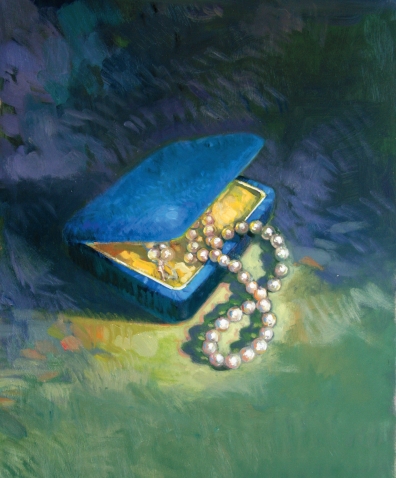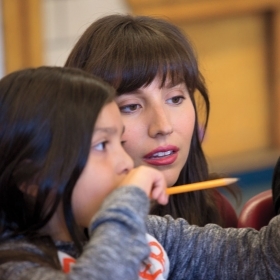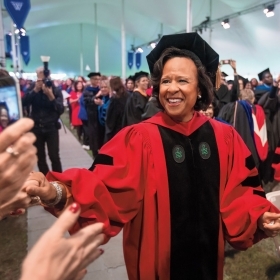When I was four, we moved to the dead end of Glenbrook Road, where half the houses held old ladies: Mrs. Everett, Ms. Cookie, Mrs. Mayer, and next to her, Mimi. In between unpacking and chasing my one-year-old brother, my mom shooed me out the door with books. She told me to see if the old ladies wanted a reader.
Mrs. Everett had no time for babysitting. She smiled as she strode past me into town. Ms. Cookie shoved a dozen cookies into my upturned shirt and encouraged me onward. Mrs. Mayer waved me inside. She led me past cupboards of music boxes and the room where her daughter breathed through multiple sclerosis. Mrs. Mayer dropped onto the couch. She patted the cushion. She scratched her dry arms, and I opened my book.
I walked home by way of backyards, crossing Mimi’s before my own. She was hauling buckets of water to her wildflower gardens. She was wearing her uniform: a collared shirt, buttoned cardigan, pleated khaki shorts. Perhaps also her Wellesley pearls. I passed Mimi’s barn, where I would one day shoot black-and-white photographs for my high-school art class. Mimi’s laid-up wooden sailboat, stories about which would spur me to work on a Beneteau sloop in my 20s. The warm ranch home that would be a symbol of permanence when we lost ours.
My family moved right after I received college acceptance letters and my dad lost his job. At Mimi’s urging, I had applied to Wellesley, the only school that revised my financial package when I called to explain the situation. With a boatload of grants and loans, I headed off to the school from which my neighbor had graduated in 1943.
When I arrived, a box of cookies waited on my plastic mattress—a gift from Mimi’s sister-in-law, who graduated in 1947 and still lived in Boston. I scarfed the cookies and threw myself into extracurricular activities and four jobs. I didn’t call home often. My mom had enrolled in graduate school. My dad was learning the industry of window sales. I missed being a kid, and every Wintersession I would drive back to Glenbrook Road. I would let the car idle down to the dead end and back again.
After that first afternoon, back before kindergarten, I walked the old-lady route countless more times. Mrs. Mayer insisted I not lug library books, and so we made our way through her bookshelf. Afterward, she wound up the music boxes and read aloud her own short stories, scrawled onto spiral bound pages. Largely as a result of those afternoons, at Wellesley I had declared myself an English major.
A few weeks before graduation, I received a notice from the College. It said that I wouldn’t receive a diploma at commencement because my tuition was delinquent—just over $2,000. I hid the notice in the middle of my thickest textbook.








We ask that those who engage in Wellesley magazine's online community act with honesty, integrity, and respect. (Remember the honor code, alums?) We reserve the right to remove comments by impersonators or comments that are not civil and relevant to the subject at hand. By posting here, you are permitting Wellesley magazine to edit and republish your comment in all media. Please remember that all posts are public.